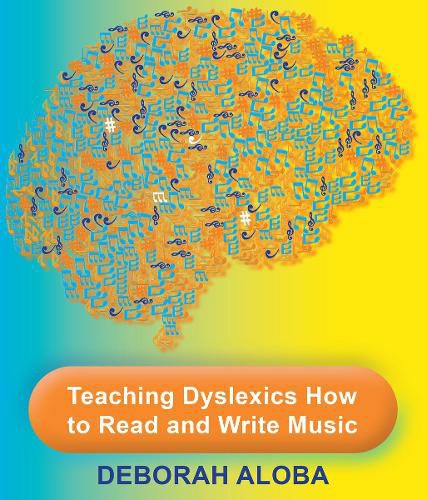Readings Newsletter
Become a Readings Member to make your shopping experience even easier.
Sign in or sign up for free!
You’re not far away from qualifying for FREE standard shipping within Australia
You’ve qualified for FREE standard shipping within Australia
The cart is loading…






This title is printed to order. This book may have been self-published. If so, we cannot guarantee the quality of the content. In the main most books will have gone through the editing process however some may not. We therefore suggest that you be aware of this before ordering this book. If in doubt check either the author or publisher’s details as we are unable to accept any returns unless they are faulty. Please contact us if you have any questions.
Singer Deborah Aloba has been teaching singing and music for over 20 years. She managed a small opera company for 12 years and has run opera workshops in schools and prisons. She has a diverse student base, which includes students with dyslexia and other learning difficulties - all while acquiring a Master’s in Vocal Pedagogy.
She says:
I know from experience that the basics of reading and writing music are necessary if you want to perform well as a singer or musician. How else can you really understand what the composer wants from you?
Can you imagine what it must be like to pick up a piece of music and see all the components moving around a page? Or to want to perform a particular piece of music but to be unable to remember the words you are supposed to sing, even though you can see them clearly in front of you. Or to be unable to access the information the composer has given you to perform the piece? The experience can be overwhelming.
I believe that with the correct aids and methods many of the problems experienced by dyslexic and learning disabled students can be significantly reduced and, in some instances, resolved.
My first experience of teaching a dyslexic student made me realise that although there were aids and methods that could assist in their learning, they were not easily available. Much of the information was anecdotal and there was no one place to access it all from.
I have researched and tested the anecdotal evidence and developed my own methods. I also employ assistive technology when teaching my students, some who are now experimenting with composing music.
This book presents the aids and methods I have found most effective when teaching a dyslexic student and I hope you and your students will find it useful.
$9.00 standard shipping within Australia
FREE standard shipping within Australia for orders over $100.00
Express & International shipping calculated at checkout
This title is printed to order. This book may have been self-published. If so, we cannot guarantee the quality of the content. In the main most books will have gone through the editing process however some may not. We therefore suggest that you be aware of this before ordering this book. If in doubt check either the author or publisher’s details as we are unable to accept any returns unless they are faulty. Please contact us if you have any questions.
Singer Deborah Aloba has been teaching singing and music for over 20 years. She managed a small opera company for 12 years and has run opera workshops in schools and prisons. She has a diverse student base, which includes students with dyslexia and other learning difficulties - all while acquiring a Master’s in Vocal Pedagogy.
She says:
I know from experience that the basics of reading and writing music are necessary if you want to perform well as a singer or musician. How else can you really understand what the composer wants from you?
Can you imagine what it must be like to pick up a piece of music and see all the components moving around a page? Or to want to perform a particular piece of music but to be unable to remember the words you are supposed to sing, even though you can see them clearly in front of you. Or to be unable to access the information the composer has given you to perform the piece? The experience can be overwhelming.
I believe that with the correct aids and methods many of the problems experienced by dyslexic and learning disabled students can be significantly reduced and, in some instances, resolved.
My first experience of teaching a dyslexic student made me realise that although there were aids and methods that could assist in their learning, they were not easily available. Much of the information was anecdotal and there was no one place to access it all from.
I have researched and tested the anecdotal evidence and developed my own methods. I also employ assistive technology when teaching my students, some who are now experimenting with composing music.
This book presents the aids and methods I have found most effective when teaching a dyslexic student and I hope you and your students will find it useful.